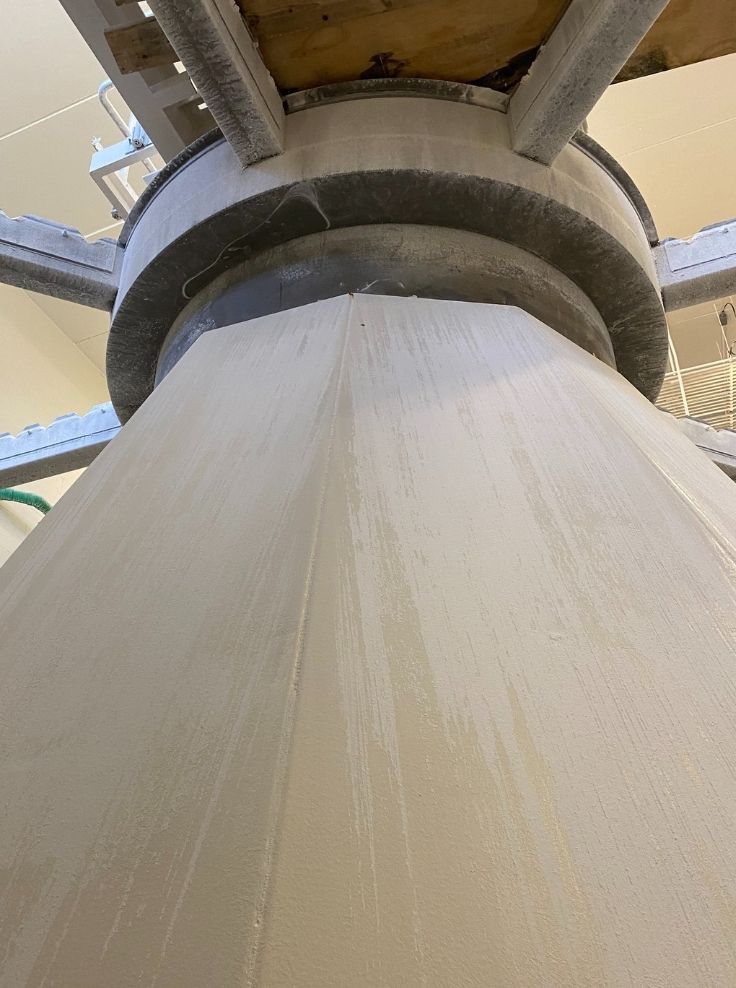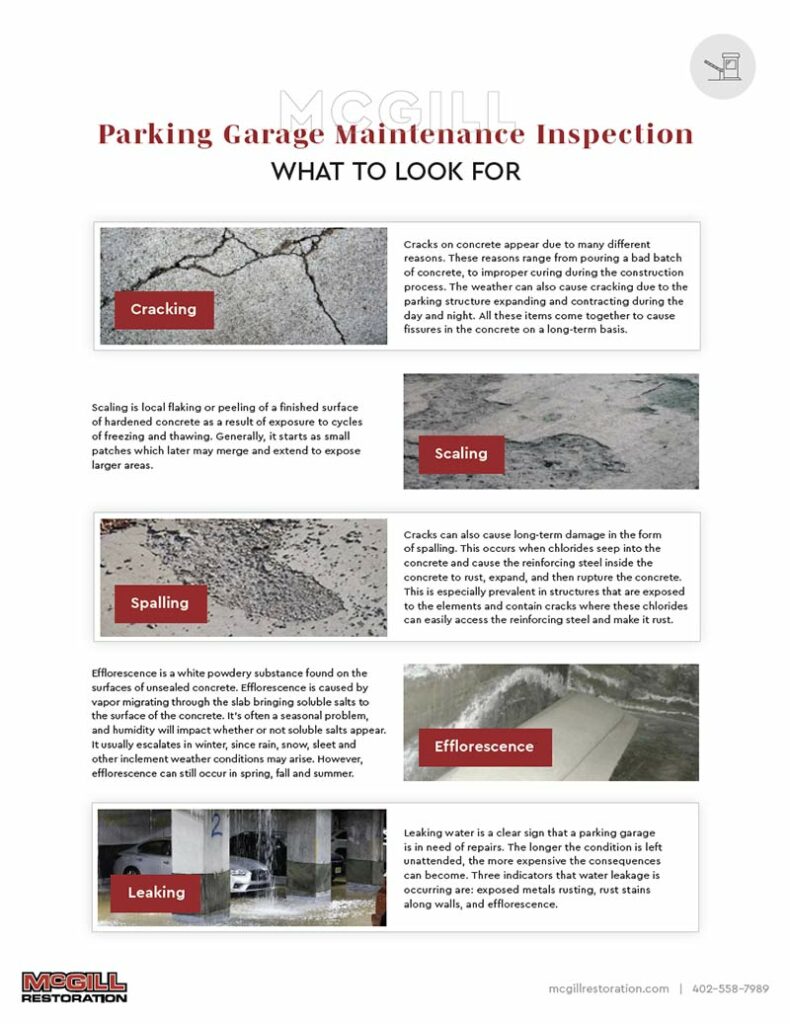Table of Contents
Corrosion puts your structure at risk and assessing and repairing damage is something that simply cannot wait. Corrosion primarily refers to metals experiencing deterioration from chemical or biological elements occurring in the environment. Chemical changes to the metal will cause rust and material loss when left unchecked. Industrial coating is critical in protecting metals from corrosive properties common in the environment.
Industrial Coating Provides a Wall of Defense
Metal structural elements are under constant attack from water and chemicals. Without a dedicated layer of protection, the lifespan of your structure is severely shortened by acidic elements and material decay.
Corrosion is a major problem with overall structure deterioration and it must be addressed before the raw material is beyond the point of repair. Re-finishing the surface and applying a new coating can provide industrial corrosion protection for your structure for years, saving costly repairs to severe structural damage.
Self-Inspection vs. Professional Inspection
Identifying corrosion is the first step towards controlling and repairing the damage. Self-inspection is a great way to monitor structure health without engaging professional surfaces.
Pay attention to structural surfaces while looking for irregularities. Surface rust is a key indicator of metal corrosion and the industrial coating will have flaking, cracking, and light delamination in the early phases of deterioration. Advanced corrosion will have significant rusting, crumbling, and visual deterioration of the metals.
Signs of Corrosion and Deterioration on Self-Inspection:
- Surface rust and discoloration on metals
- Flaking, bubbling, cracking, crumbling
- Dull coloration, loss of gloss from industrial coating degradation
After discovering corrosion in your structure, having a professional inspection is the next logical step. Even if corrosion is not evident, an annual professional inspection is prudent to stay ahead of deterioration and failing industrial coatings. Inspections may be a requirement to maintain licensing and keep the structure operational as well.
A professional will thoroughly assess the extent of the damage while working through suggestions to repair and restore the inflicted areas. Significant damage may require more intensive restoration before new industrial coatings are applied. Catching corrosion early will save on restoration costs while preserving the integrity of your structure.
The professional inspection should reveal:
- Deterioration rate and extent of corrosion damage
- Faults and defects in materials, industrial coatings, and construction
- Causation (leaks, chemical exposure, etc.)
- Risk associated with corrosion to structure
Several types of inspection processes are used to thoroughly monitor a structure. The exposure time, current condition, life expectancy, consequence of failure, and probability and risk levels are all specific elements of a complete inspection. To avoid failure in coating inspection, finding the best partner is crucial.
Finding a Restoration Partner – Check the Certifications
Restoration and renewal of industrial coatings require experience and specific knowledge regarding chemical-caused deterioration, site repair, and coating selection and application.
Always work with certified contractors holding pedigree and reputation in the restoration field. McGill Restoration is accredited by the Better Business Bureau, AMPP, ICRI Concrete Repair, the SWR Institute, and more. These accreditations and certifications ensure your project is in good hands.
We are proud members of AMPP where you can find additional best practices for corrosion measurement and inspection.
Surface Preparation and Restoration
Before a new industrial coating is applied, the existing metals are either replaced or stripped of all old coatings and infected areas. Light surface corrosion is polished to completely remove the areas influenced by the chemical process. Only after the metals are completely cleaned or replaced can a new coating be applied.
The site preparation is often intensive, requiring significant grinding, sandblasting, welding, and cleaning followed by thorough inspections before a coating is applied. Painting over rust will not solve the problem and the chemical change and corrosion will continue under the cover of a fresh coating.
Industrial Coating Selection Process
Coatings are complex and a qualified coating inspector is essential to the process. This individual will inspect the material prior to application and approve the chosen industrial coating to ensure it’s the best fit for the job. The coating warranty is often subject to having a full inspection prior to and after application.
The application of an industrial coating must have full coverage without trash or debris embedded in the coating. A clean, smooth application without running or sagging requires an experienced team. Site prep, attention to detail, and proper mixing and application are all critical to the success of an applied industrial coating.
When done properly, the corrosion-resistant coating can restore integrity to the metal surfaces and ward off corrosion for years to come.
Industrial Coating Life Expectancy
Nothing lasts forever but a properly applied industrial coating can serve your structure for a very long time. The exact lifespan ultimately depends on the coating type and level of exposure to chemicals and elements.
A water tank liner coating has different properties from a petroleum tank liner coating and each will come with an expected lifespan determined through the inspection process. A life expectancy should be communicated clearly in any restoration proposal along with the coating of choice and future inspection requirements.
Structures with increased exposure to water, acidic chemicals, and industrial runoff require more frequent inspections and renewals. Always check the lifespan, plan future inspections and pay special attention to any industrial coating warranty offered. A true partner will also show you what to look for during self-inspections to aid early detection of corrosion.
McGill Restoration and the Wilkinson Industrial arm are proud to have a team of experts dedicated to stopping corrosion and restoring structures. Keep your structure in service longer and prevent downtime with the best restoration solution in the midwest.
McGill Restoration Process
Beating industrial corrosion is no easy job, and the experts at McGill Restoration specialize in thorough industrial restoration that breathes new life into your structure. From inspection to site preparation, coating selection, and application, our team is here for you.
Our Process:
- Estimate and Proposal
- Contract Accepted
- Pre-Construction Prep
- On-Site Work Begins
- Daily Check-Ins
- Weekly Performance Monitoring
- Project Completion
Learn more about Wilkinson Industrial, a McGill Restoration company focused specifically on corrosion control.
Corrosion primarily refers to metals experiencing deterioration from chemical or biological elements occurring in the environment. Chemical changes to the metal will cause rust and material loss when left unchecked. Industrial coatings are critical in protecting metals from corrosive properties common in the environment.
Industrial coatings are covers protecting metals, steel, concrete or other materials from corrosive properties common in the environment.
Here are 6 commonly used industrial coating types:
- Polyurethane coatings
- Epoxy coatings
- Alkyd coatings
- Zinc-rich coatings
- Acrylic coatings



